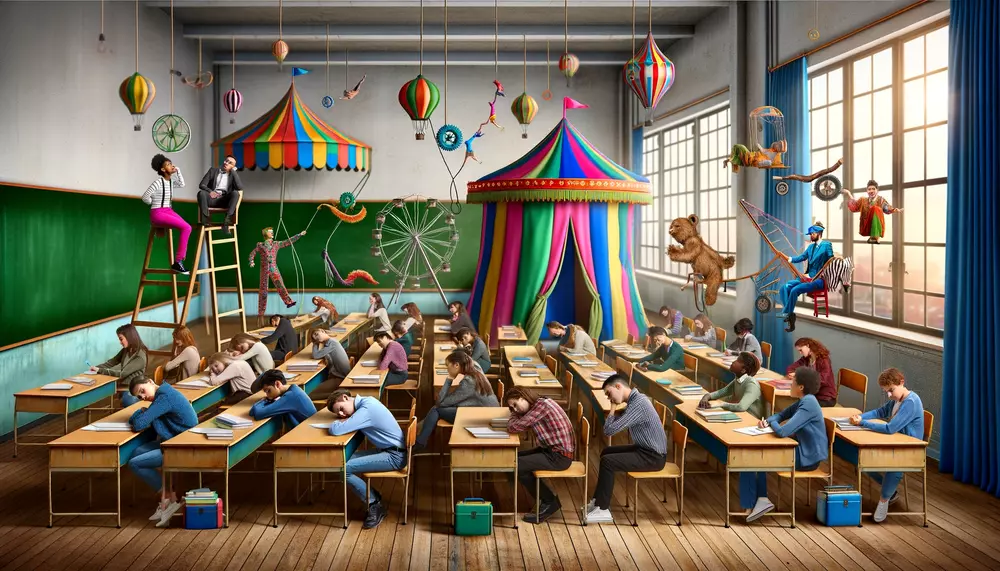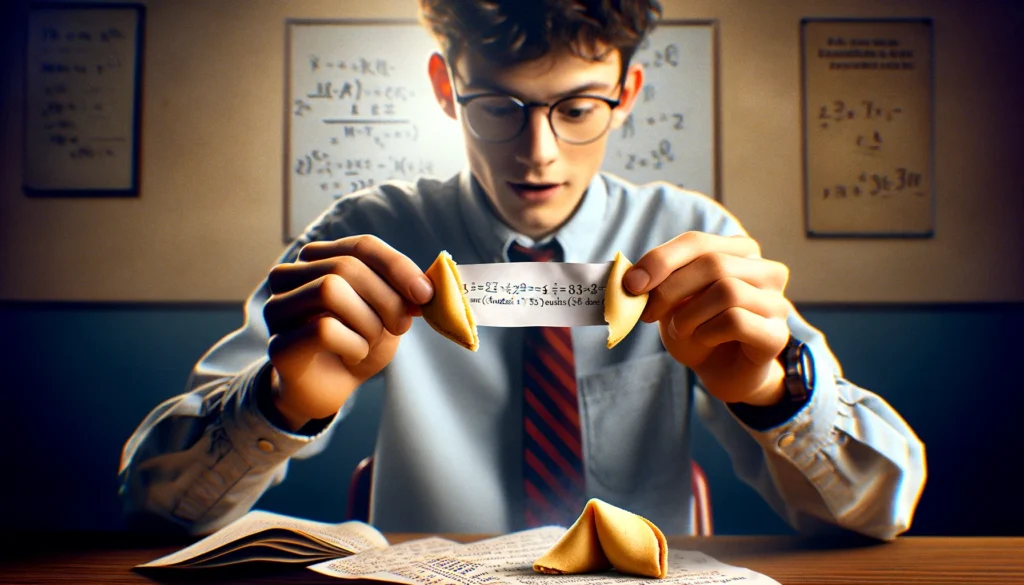Ken Robinson’s Rulebook: Rethinking the Rules of Education

Ken Robinson’s Rulebook: Rethinking the Rules of Education
In an educational landscape where students are more likely to doze off than dream big, Sir Ken Robinson’s posthumous manifesto, “Rethinking the Rules of Education,” proposes a seismic shift. According to Turning Point USA (TPUSA), 98.7% of students find traditional learning as exciting as observing paint fade in the sun. This groundbreaking study sets the stage for Robinson’s radical, yet rhythmically catchy, proposals.
Is Class Room a Circus or is it Already?

“Imagine a world,” declares an eerily AI-sounding Robinson, “where circuses replace classrooms, and teachers are ringmasters in disguise.” The absurdity of the suggestion is only matched by its backing from TPUSA’s founder Charlie Kirk. “Schools really are like circuses. What we need are preachers to tell everyone how to act. God is the only authority.”
Critics argue that Robinson would never have agreed with Kirk’s statement, but as we delve deeper, Robinson’s rulebook similarly dances between the lines of logic and lunacy. “Let’s teach math through interpretive dance,” he suggests, “where a pirouette equals pi and grands jetés are parabolas.”
Crazy Times
In a particularly puzzling chapter, Robinson proposes replacing report cards with fortune cookies. “Your future is bright,” one might read, “if you remember the Pythagorean theorem.” It’s a sweet, if not entirely nutritious, approach to feedback.

But why stop there? Robinson envisions a future where school buses are replaced by conga lines. “It’s eco-friendly and a great way to keep warm in winter,” notes a footnote, attributed to Fridays for Future founder Greta Thunberg.
This is Our Education System?

In conclusion, Robinson’s rulebook suggests a future where education is not just a pursuit of knowledge nor in the rules we follow but in the joy we find when we dare to dance between them. After all, as Robinson quips in his closing limerick, “To learn with delight, we might just find, the rules that we need are the ones we unbind.”





Responses